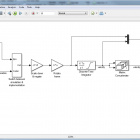stonechild
Member Since: March 7, 2009
Country: United States
-
No, no, that's the vision section. I said I wanted a deeper voice.
-
I wish this had been better publicized.
-
There is also Octave which is another MatLab clone. How complete a clone it is I don't know. There is also R, the language created for statistical work, which includes fast array processing if fast array processing is the first thing you are looking for. It also has numerous packages. MatLab offers limited licenses for the package to people taking certain courses at coursera.com. I haven't yet found out what happens at course end.
-
littleBits sounds pretty neat, but how do they differ from Snap Circuits? I suppose as you learned about the circuits, you could begin to build your own. It would be easier, I would think because littleBits would be much closer to what you might build on your own
-
I don't see how these cubes demonstrate emergent behavior. Just because you can assemble them to produce different behaviors isn't emergent behavior. The behaviors produced can be reduced to the behaviors of the individual cubes. They would have to do something novel or totally unexpected. If they started putting other cubes together to produce things they could use that might be emergent behavior.
-
Thanks for taking the time to edit my comments. You entirely miss the point though.
-
You can take this as sour grapes, but this whole thing was incredibly ill thought out. I guess you may have had 70,000 unique visitors, but how many couldn't connect to the server. Perhaps quite a few more than the 70,000. I wouldn't be so pissed off if I could have connected and missed the $100.00 credit. For so many not to be able to connect is outrageous.
This reminds me of the Walmart fiasco where people were crushed trying to get into the store for a deal.
For what it's worth, I had planned to buy a number of the items even if I missed the credit, but now the order will go elsewhere.
Perhaps you should graph the lucky 100 against the outraged.
One also wonders how many of the purchases were made by scripts. -
I'm wondering if a USB to parallel adapter would work with this. If it worked, it would seem to be the cheapest solution for loading/debugging an ARM based board for those of us with only USB ports on our PCs.
The one problem I see is that these adapters seem to be made mostly for connecting printers, so they might not be completely equivalent to a parallel port. -
The design goal of the Arduino was to create a device that was easy to use for people who wanted the functionality of the device, not to learn electronics or programming. Look at what people from the design and art world do with it.
My background is as a software developer and I bought an Arduino because it could operate on the world. I wasn't all that interested in fighting with circuits, not that I'm adverse to learning the electronics.
I would still like a board based on the AVR ARM based chips that could run something like Linux, but has some of the same support that the Arduino has. There are other boards with ARM based chips that have at least some support that I could switch to.
I think that there are a lot of people who start with the Arduino and go on to bigger and better things and come to places like SparkFun to meet their needs. -
Apparently adding a mic to the iPod Touch is a very iffy proposition. If you look at the microphone adapters that are offered at amazon.com, they all get lots of complaints. It's rumored that the iPod Touch can detect a non-Apple produced earphone/mic.
i-luv has recently announced a mic adapter that has been blessed by Apple, but they don't seem to have any on hand. I've been looking for a microphone adapter for months so that I can use Skype with my iPod Touch.








